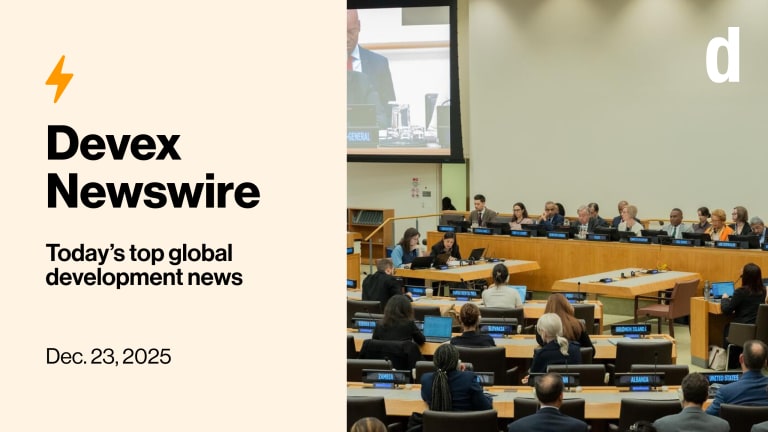
Public-private partnerships are gaining traction within the international development industry as a way to engage the private sector in global development, but what about governments?
Kamran Khan, the Millennium Challenge Corp.’s vice president of compact operations, tackled the issue this week during a conference on PPPs hosted by the Partnership to Cut Hunger and Poverty in Africa in Washington, D.C.
Here are four key questions Khan said governments should consider before they decide to get into a PPP:
1. Should they be done? A government should first consider whether it should be doing PPPs at all, what costs it is willing to bear and if it can fight vested interests. Once a government decides that it doesn’t have the money or expertise alone and wants to use PPPs then it must decide whether it has the appetite for it, he said.
2. Who will do them? Then next step to decide who will be carrying out the PPPs and whether the institutions or players within the government exist who can help effective partner with the private sector. According to Khan, too often governments decide to jump into PPPs before figuring out who is going to help them execute the deal and whether they have the skills to speak the same language as the private sector.
3. How will they test strategies? Third, governments must determine how it will test its PPP strategies — which projects it will choose, how it will choose them and if they will pick the right ones. “We all talk about transformative projects but I always say a PPP deal that actually reaches financial close is plenty transformative for me,” the MCC official explained. Governments must employ a PPP strategy and go through a methodical, smart process with realistic expectations.
See more news on PPPs:
● ADB opens PPP advisory office to cultivate synergies
● Want a PPP partner? Provide incentives, make 'money' business case
● PPPs future of Asia-Pacific infrastructure development — ADB
● How to build an effective road safety PPP: Lessons learned from Nigeria
4. How will a deal be designed and implemented? Lastly, there has to be a plan for how the deal will be put together and carried out. In Africa, for instance, there is at best a very weak pipeline for PPPs. Going through the process is not just about one feasibility study, but a whole process including preparing the engineering, financial transaction, negotiation, commercial flows, financial flows and a monitoring framework. “It’s a long process no matter how small or how big a public-private partnership transaction, and countries need help more than just a feasibility study — they need a continuous continuum of help,” Khan said.
In recognition of the growing importance of PPPs, the MCC official shared that the U.S. government agency “is working aggressively towards PPPs, including the preparation of PPPs,” with announcements to come in the next few months.
Join Devex, the largest online community for international development, to network with peers, discover talent and forge new partnerships — it’s free. Then sign up for the Devex Impact newsletter to receive cutting-edge news and analysis every month on the intersection of business and development.








